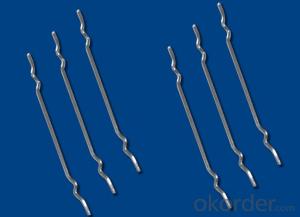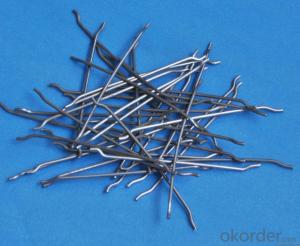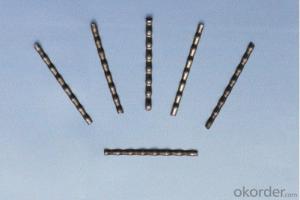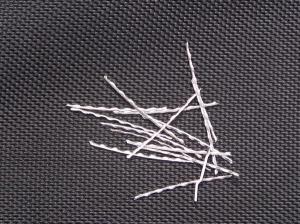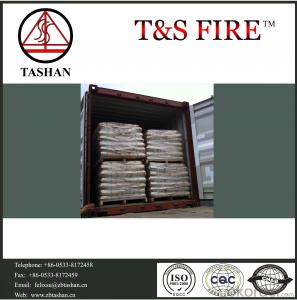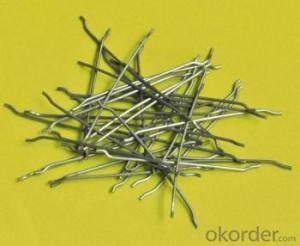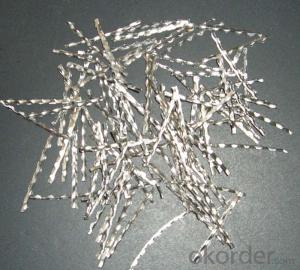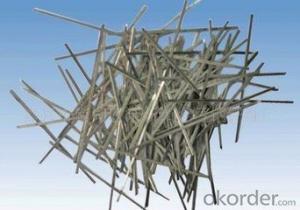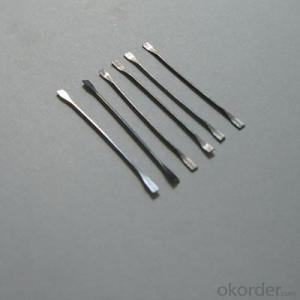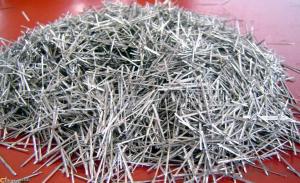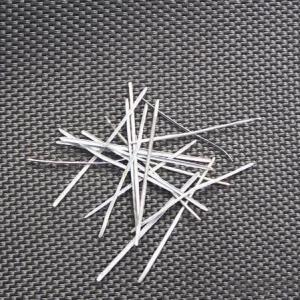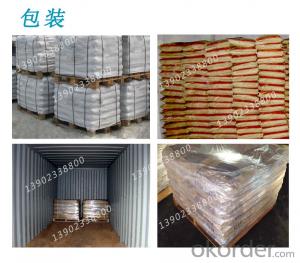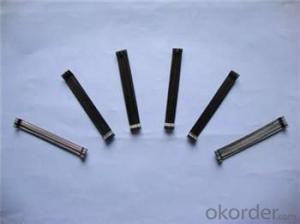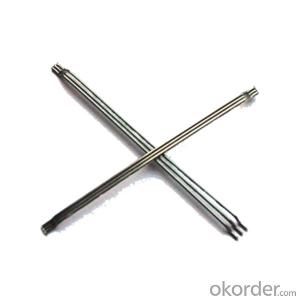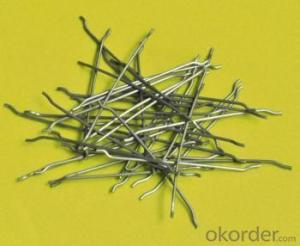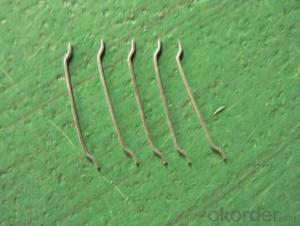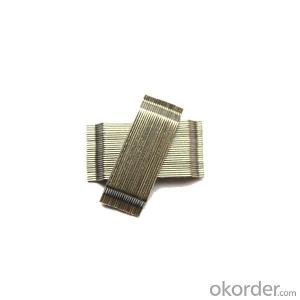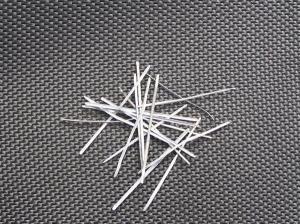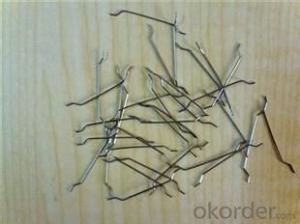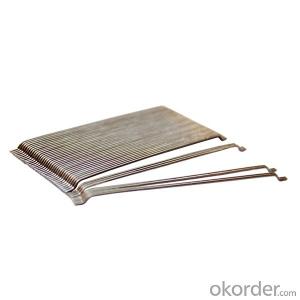Steel Fiber Loose End Hook for Construction
- Loading Port:
- Tianjin
- Payment Terms:
- TT OR LC
- Min Order Qty:
- 1000 kg
- Supply Capability:
- 30000 kg/month
OKorder Service Pledge
OKorder Financial Service
You Might Also Like
Quick Details
Place of Origin: China (Mainland)
Model Number: HT-MC
Material: Color Steel
certificated: ISO 9001
The Products
Our products have steady quality performance, artistic appearance. Its tensile strength, bend ductility, fatigue resistance all reach
or exceed the standerd of country's stipulation.
Our main produces are RPC coppercoated steel fiber, steel belt cuuting steel fiber and steel wire cutting steel fiber. Anual output is
15000 tons.Our raw materials are purchasing from famouse brand company in demestic.
Our products are widely used in expressway, high speed railway, industrial terrace, tunnel, bridge, airport runway and so on.We have
sold our steel fiber to lots of province of China and a lot of countrys and areas, such as korea, japan, austrilia mid-east, south asia
and so on.
1. Directadding steel fibers to the belt,the rows of steel fiber as a whole,each of the concrete uniformly dispersed Corner
2. A water-soluble glue starts to dissolve,in a row of steel fibers in a dispersion premise,dispersed again in every corner of the monofilament fiber,showing a perspective view in the concrete of the fiber web, which play the role of an overall reinforcement.
3. Compare to the monofilament fiber,the glued steel fiber wouldn't be tied up,to ensure that the fibers in the concrete mixing does not agglomerate,distributed evenly.
Specifications
model
| length(mm) | diameter(mm) | L/D
| Tensile strength | The number of per kg |
Boen-Cp 65/35 | 35 | 0.55 | 65 | ≥1100 | 14500 |
Boen-Cp 80/50 | 50 | 0.62 | 80 | ≥1100 | 8100 |
Boen-Cp 100/60 | 60 | 0.62 | 100 | ≥1100 | 6800 |
Boen-Cp 80/60 | 60 | 0.75 | 80 | ≥1100 | 4600 |
Boen-Cp 65/60 | 60 | 0.90 | 65 | ≥1000 | 3200 |
Boen-Cp 55/60 | 60 | 1.05 | 55 | ≥1000 | 2300 |
Picture
PP bag
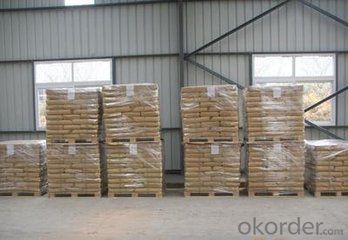
any type
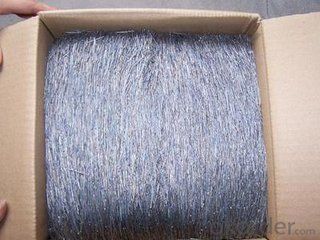
steel fiber
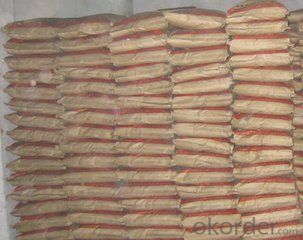
FAQ
Steel fiber
1) greatly improve concrete bonding and tensile strength
(2) improve mechanical performance concrete
(3) prevent the damage to the concrete
(4) decrease the danger from crack of the concrete
(5) provide exceptional load stability and durability
- Q:Can melt extract stainless steel fiber be used in basement walls?
- Yes, melt extract stainless steel fiber can be used in basement walls. It is commonly used as a reinforcement material to improve the structural integrity and durability of concrete. The stainless steel fibers enhance the flexural and tensile strength of the concrete, making it an ideal choice for basement walls that require added strength and resistance to cracking.
- Q:Can melt extract stainless steel fiber be used in airport pavement applications?
- Yes, melt extract stainless steel fiber can be used in airport pavement applications. It provides enhanced strength and durability to concrete, making it suitable for heavy traffic areas like airports. The stainless steel fibers also offer resistance to corrosion and fatigue, ensuring a longer lifespan for the pavement.
- Q:Application of steel fiber concrete in water conservancy and hydropower project
- The modern water conservancy and hydropower project construction, gradually using the wet sprayed steel fiber reinforced concrete, small rebound rate (5%~10%), no rebound in steel fiber concrete), uniform quality, usually can reach the strength of 55MPA, special operations, can reach 100MPA; the less dust, safe operation; water cement ratio, water permeability low; do not need anti-corrosion treatment, can prevent electrolysis and accelerated corrosion. Good durability and crack resistance. It can prevent shrinkage and compactness.
- Q:How does melt extract stainless steel fiber affect the shrinkage of concrete?
- Melt extract stainless steel fiber can have a significant impact on the shrinkage of concrete. When added to concrete mixtures, these fibers help to reduce the overall shrinkage of the material. This is due to the unique properties of stainless steel fibers, such as their high tensile strength and low thermal expansion coefficient. During the curing process, concrete undergoes a chemical reaction called hydration, where water reacts with the cement to form a solid matrix. As this reaction takes place, the water evaporates, causing the concrete to shrink. This shrinkage can lead to cracking and decreased durability of the concrete structure. However, the addition of melt extract stainless steel fibers helps to mitigate this issue by providing reinforcement within the concrete matrix. These fibers act as reinforcement bars, distributing the stresses created by shrinkage more evenly throughout the concrete. As a result, the overall shrinkage and subsequent cracking are reduced. Furthermore, the low thermal expansion coefficient of stainless steel fibers helps to minimize the effects of temperature changes on the concrete. Temperature fluctuations can cause concrete to expand and contract, leading to additional shrinkage and potential cracking. The stainless steel fibers help to limit these movements, maintaining the integrity of the concrete structure. In summary, melt extract stainless steel fibers positively affect the shrinkage of concrete by reducing overall shrinkage and mitigating the potential for cracking. Their high tensile strength and low thermal expansion coefficient make them an effective reinforcement material, enhancing the durability and longevity of concrete structures.
- Q:Can melt extract stainless steel fiber be used in nuclear power plant construction?
- Yes, melt extract stainless steel fiber can be used in nuclear power plant construction. Stainless steel fibers are commonly used in construction projects for their high strength, corrosion resistance, and thermal stability. These qualities make them suitable for various applications in nuclear power plants, such as reinforcing concrete structures, improving the mechanical properties of concrete, and enhancing the overall durability of the plant. Additionally, stainless steel fibers can withstand high temperatures and radiation exposure, which are important considerations in nuclear power plant environments. Therefore, melt extract stainless steel fibers can be a valuable material for ensuring the safety and longevity of nuclear power plant construction.
- Q:Does melt extract stainless steel fiber affect the electrical conductivity of concrete?
- The electrical conductivity of concrete can be affected by the use of melt extract stainless steel fiber. When stainless steel fibers are incorporated into the concrete, they have the potential to enhance its electrical conductivity. This enhancement is achieved by the creation of a conductive network within the concrete matrix, enabling the flow of electrical current. This improved electrical conductivity is particularly advantageous in situations where electrical grounding or conductivity is necessary, such as when constructing electrostatic discharge (ESD) flooring or producing conductive concrete for electromagnetic shielding. However, it is essential to consider that the actual impact on electrical conductivity will vary depending on several factors, including the quantity and distribution of the stainless steel fibers in the concrete mixture.
- Q:How does melt extract stainless steel fiber affect the fatigue resistance of concrete?
- Melt extract stainless steel fiber can significantly improve the fatigue resistance of concrete. When added to the concrete mix, these fibers enhance the overall durability and strength of the material, making it more resistant to cracking and structural failures caused by repetitive loading or cyclic stress. The unique properties of stainless steel fibers, such as high tensile strength and excellent corrosion resistance, contribute to their ability to enhance the fatigue resistance of concrete. These fibers act as reinforcement within the concrete matrix, effectively bridging cracks and preventing their propagation under cyclic loading. By dispersing evenly throughout the concrete mixture, melt extract stainless steel fibers create a three-dimensional network that enhances the overall structural integrity. This network helps to distribute the applied stress more evenly, reducing stress concentrations and minimizing the risk of fatigue failure. Additionally, the high corrosion resistance of stainless steel fibers ensures that they maintain their structural integrity over time. This is particularly important in concrete structures exposed to harsh environmental conditions or corrosive agents, as the fibers will not degrade or weaken due to corrosion, thereby preserving their beneficial effects on fatigue resistance. In summary, incorporating melt extract stainless steel fibers into concrete significantly improves its fatigue resistance by reinforcing the material and enhancing its ability to withstand cyclic loading or repetitive stress. The fibers act as crack arresters, distribute stress more evenly, and provide long-term durability due to their corrosion resistance.
- Q:Is melt extract stainless steel fiber suitable for use in pre-stressed concrete?
- Yes, melt extract stainless steel fiber is suitable for use in pre-stressed concrete. Stainless steel fibers are known for their high tensile strength, corrosion resistance, and ability to improve the performance of concrete. In pre-stressed concrete, where tension is applied to the concrete before it is loaded, the use of stainless steel fibers can enhance the overall strength and durability of the structure. Melt extract stainless steel fibers are made by melting stainless steel and then rapidly cooling it to form fine fibers. This process ensures that the fibers have a consistent shape and size, which is crucial for their effectiveness in pre-stressed concrete. The fibers are typically added to the concrete mix during the mixing process, where they are evenly distributed throughout the mixture. The addition of melt extract stainless steel fibers helps to reduce cracking and increase the flexural strength of pre-stressed concrete. The fibers act as reinforcement, providing additional tensile strength to the concrete and improving its resistance to cracking under tension. This is particularly important in pre-stressed concrete, where the concrete must withstand significant forces without fracturing. Furthermore, stainless steel fibers are resistant to corrosion, which is essential for long-term durability in pre-stressed concrete. Unlike other types of fibers, melt extract stainless steel fibers do not degrade over time due to exposure to moisture or chemicals present in the concrete. This ensures that the fibers will continue to provide reinforcement and enhance the performance of the pre-stressed concrete structure for an extended period. Overall, melt extract stainless steel fiber is a suitable choice for use in pre-stressed concrete. Its high tensile strength, corrosion resistance, and ability to improve the performance of concrete make it an excellent reinforcement material for pre-stressed concrete structures.
- Q:How does melt extract stainless steel fiber impact the shear behavior of concrete beams?
- Melt extract stainless steel fiber has a significant impact on the shear behavior of concrete beams. When added to concrete, these fibers contribute to improving the overall strength and durability of the material. Firstly, the inclusion of melt extract stainless steel fibers enhances the shear resistance of concrete beams. These fibers act as reinforcement, increasing the capacity of the concrete to resist shear forces. This is particularly important in structures where shear failures can occur, such as beams subjected to heavy loads or seismic events. The presence of stainless steel fibers also improves the crack resistance of concrete beams under shear loading. As shear forces are applied, cracks tend to develop in the material. However, the fibers help to distribute these cracks more evenly, preventing them from propagating and reducing the risk of sudden failure. This improves the overall ductility and reliability of the concrete beams. Additionally, melt extract stainless steel fibers enhance the energy absorption capacity of concrete beams. When subjected to shear forces, the fibers deform and absorb energy, thereby dissipating the applied load. This behavior not only increases the structural integrity of the beams but also helps to minimize the potential for progressive collapse in case of extreme loading conditions. Moreover, the use of melt extract stainless steel fibers can improve the long-term performance of concrete beams. These fibers are highly resistant to corrosion, ensuring the durability and service life of the reinforced concrete structure. The stainless steel fibers also provide resistance against environmental factors, such as freeze-thaw cycles and chemical attacks, which can deteriorate the concrete over time. In conclusion, melt extract stainless steel fibers have a positive impact on the shear behavior of concrete beams. They enhance the shear resistance, crack resistance, energy absorption capacity, and long-term performance of the beams. Incorporating these fibers into concrete mixtures can significantly improve the overall structural integrity, reliability, and durability of the reinforced concrete beams.
- Q:Can melt extract stainless steel fiber be used in lightweight concrete applications?
- Yes, melt extract stainless steel fiber can be used in lightweight concrete applications. The addition of stainless steel fibers enhances the strength and durability of lightweight concrete, making it suitable for a wide range of construction applications.
1. Manufacturer Overview |
|
|---|---|
| Location | |
| Year Established | |
| Annual Output Value | |
| Main Markets | |
| Company Certifications | |
2. Manufacturer Certificates |
|
|---|---|
| a) Certification Name | |
| Range | |
| Reference | |
| Validity Period | |
3. Manufacturer Capability |
|
|---|---|
| a)Trade Capacity | |
| Nearest Port | |
| Export Percentage | |
| No.of Employees in Trade Department | |
| Language Spoken: | |
| b)Factory Information | |
| Factory Size: | |
| No. of Production Lines | |
| Contract Manufacturing | |
| Product Price Range | |
Send your message to us
Steel Fiber Loose End Hook for Construction
- Loading Port:
- Tianjin
- Payment Terms:
- TT OR LC
- Min Order Qty:
- 1000 kg
- Supply Capability:
- 30000 kg/month
OKorder Service Pledge
OKorder Financial Service
Similar products
New products
Hot products
Related keywords
